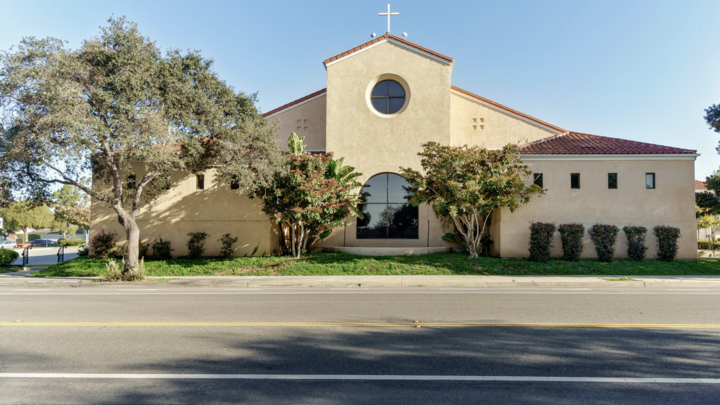Current Volunteers
At Reality Kids we love Jesus, love kids, and are excited to partner with parents! Here, Jesus is the Hero of every story, and we strive to cultivate a Gospel-centered ecosystem where kids can encounter, explore, and enjoy life with Jesus.
Upcoming Lessons
Leader Bible Study | Jesus Told Nicodemus About Eternal Life (John 3)
Light and darkness are contrasted throughout the Scriptures. In John 3, Jesus explained to Nicodemus the hope and grace of God and the means by which He saves. Consider what Jesus was saying as He emphasized this contrast in this conversation.
In John 3:19-21, Jesus said, “This is the judgment: The light has come into the world, and people loved darkness rather than the light because their deeds were evil. For everyone who does evil hates the light and avoids it, so that his deeds may not be exposed. But anyone who lives by the truth comes to the light, so that his works may be shown to be accomplished by God.”
Jesus said that judgment is coming—and has arrived—because people loved the darkness more than the light. Ultimately, Jesus was referring to Himself, having entered the world to overcome the darkness. But as John 1 says, He was not recognized as the light, even by His own people.
Some two thousand years later, the question is, do we too love the darkness, or have we truly received the light? And how can we know? Jesus helps us answer this question.
One might summarize Jesus’ response this way: if you love the darkness, your deeds will be evil. If you love the light, your works will be obvious evidence of the power of God. The evidence of whether we love the darkness or the light is found in the way we live.
Do you live in a way that expresses your love for light or for darkness? Is there a clear picture of the power of God in your decisions, actions, and words? Do people see the work of God and hear of His power when they interact with you?
It’s easy to answer these important questions with aspirations, but we cannot convince God of what is not true. And even further, our aspirations mean nothing without a deep dependence on God’s transformation for our lives. Though we find evidence of what we love in how we live, ultimately God looks at the heart. Our lives will be evidence for loving God above all else. In our faithful pursuit of the light, the evidence will show itself.
people TO KNOW
Nicodemus: a Pharisee who visited Jesus at night, seeking to flee from the darkness of his own sin and ignorance to the light of Jesus. He later participated in Jesus’ burial. (John 19:39-41)
Preschool
Lesson Plans
Resources
Elementary
Lesson Plans
Resources
Leader Bible Study | Jesus Told a Woman About Living Water (John 4)
A clear reality that echoes throughout the New Testament is that God sends those He saves. Jesus commanded His disciples to go and tell others about Him. (Matt. 28:18-20) The story of Jesus and a Samaritan woman in John 4 also provides reminders of this idea.
Upon the Samaritan woman’s hearing that God Himself was standing before her, she left her water—the very thing she had come to the well for—and returned quickly to her town to tell of this man.
Her response was not to run from Jesus but to expend her energy bringing others to Him: “Come, see.” At the very least, she concluded that He was the Messiah. At the very most, she had surrendered to His authority over her life and was now trusting in His power to forgive. Either way, she was moved to go and tell.
Immediately following this, Jesus used the question of His need for food to exhort the disciples to go and tell as well. After telling the disciples that He is fulfilled by doing the work of God, Jesus shared with His friends that they too were created to participate in the work of God— sowing and reaping by bringing men, women, boys, and girls
to Jesus.
Ultimately, Jesus called these men to follow Him so they would experience joy in His presence forever, glorify Him, and invite others to do the same. He saved them to participate in the mission of God to make known the hope found only in Him.
And the same is true of us as well. Those whom God has saved are also sent by Him so that people in their communities and all over the world can receive the invitation to come and see the Savior—Jesus Christ.
Jesus calls us to Himself and then He sends us to go. When we take part in the mission of God, we are demonstrating that we love Jesus more than anything. Before He ascended to heaven, Jesus also promised that we don’t take on this mission alone. He will surely be with us—by the gift of the Spirit.
The Lord saves us and commands us to share the hope of the gospel. As we participate in His mission, He promises to be with us and produces joy within us as others come to faith in Him. Jesus is worthy.
TERMS TO KNOW
Samaritan: name first given to the Israelites of the Northern Kingdom, some of whom married Gentile captives from other countries and began to worship their gods
at we will see Him for who He truly is, understand ourselves more fully, and then live faithfully for His glory.
TERMS TO KNOW
Disciple: follower of Jesus. As the messianic proclaimer of the reign of God, Jesus gathered about Himself a special circle of 12 disciples, clearly a symbolic representation of the 12 tribes (Matt. 19:28).
Preschool
Lesson Plans
Resources
Elementary
Lesson Plans
Resources
Leader Bible Study | Jesus Loves All People (1 Corinthians 13)
God is loving. God is love. What’s the difference between these two statements? If God is simply loving, then He fits a particular definition of love; however, if God is love, then He Himself is the definition. For God to be loving does not necessitate that He is love, but if God is love, then He most certainly
is loving.
Why does this matter? Well, a simple observation of culture demonstrates that there are multiple definitions of love. Some may suggest that love is a feeling or an action. Some may suggest that love is a noun or a verb. But if God is love, then we ought to look no further than Him and His Word to discover what love truly is.
In light of this, where Scripture describes God, we find imagery of what love is. And when Scripture describes love, we discover more of who God is. First Corinthians 13 utilizes a litany of adjectives to describe love, ultimately describing God Himself.
In this text, we find how God loves and, in particular, how He loves us. God loves us with patience, kindness, satisfaction, humility, thoughtfulness, sacrifice, truthfulness, and hope. This description ought to stir our hearts toward the worship of the God of love and move us in the direction of this type of love toward others.
The ultimate example of God’s love is Jesus, who said, “Love one another. Just as I have loved you, you are also to love one another” (John 13:34). First John 4:16 says, “And we have come to know and to believe the love that God has for us. God is love, and the one who remains in love remains in God, and God remains in him.”
God is love and God is loving; therefore, to know God is to know love. As we grow in this understanding, we can begin to demonstrate the type of love that we see in Him. And, Lord willing, others will see Him through our reflection of His love.
TERMS TO KNOW
Love: unselfish, loyal, and benevolent intention and commitment toward another. Biblical love has God as its object, true motivator, and source. Love is a fruit of the Holy Spirit. (Gal. 5:22)
Preschool
Lesson Plans
Resources
Elementary
Lesson Plans
Resources
Team Training
Thank you for serving with Reality Kids! Before serving on our team, we require that all volunteers be trained. Please listen to the trainings below so that you know what is expected of you as a Reality Kids volunteer. The first three trainings are required for all Reality Kids volunteers. Once you've listened to those, please select the age group you will be serving with for age specific training sessions.




